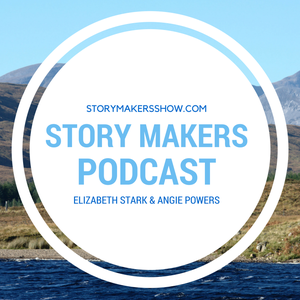
- 33 minutes 6 secondsEpisode 162: Mystically Curious: an interview with author Sanjena Sathian
In a robust conversation with the wonderful debut novelist Sanjena Sathian, Angie and Elizabeth pick her brain about craft, including defaulting to chronology as a built-in plot structure, and the benefit to stabilizing one variable in an ambitious novel with a lot of moving parts. Other topics covered include: Head hopping to find a voice with range and inflection. Connecting to/ channeling voice. Writing a dominant identity from the position of a non-dominant identity. Giving parts of ourselves to each character. Privilege and blind spots. The negotiation of self and non-self. The age of a narrator v the age of the characters. What inspired her to write. What art does v what representational politics do. The vomit draft and the cut scenes. Groping in the dark, despairing, panic, and outline: a writer’s toolkit. Editing. Noticing v building. Research and discovery. Getting outside the text. The importance of throwing things away because you know you can do something better. And the power of moving sentences around.
Links Discussed:
Article about road supposedly named for native Hawaiian gold digger
Priestdaddy by Patricia Lockwood
Don’t forget to send in your questions!

SANJENA SATHIAN
Sanjena Sathian was raised in Georgia by Indian immigrant parents. She’s a graduate of the Iowa Writers’ Workshop, an alumna of the Clarion Writers’ Workshop, and a former Paul and Daisy Soros Fellow. She has also worked as a journalist in San Francisco and in Mumbai.
Her award winning short fiction appears or is forthcoming in Conjunctions, Boulevard, Joyland, Salt Hill, and The Master’s Review. She’s written nonfiction for The New Yorker, The New York Times, The Washington Post, The San Francisco Chronicle, Food and Wine, The Boston Globe, The Juggernaut, The Millions, OZY, and more.
Story Makers is a podcast that features in-depth conversations with accomplished writers, filmmakers and industry experts about story craft, technique, habit and survival–everything you need to know to stay inspired, connect to your creativity, find others’ wonderful stories and your own success.
The hosts:
Elizabeth Stark is a published, agented novelist and distributed filmmaker who teaches and mentors writers at BookWritingWorld.com.
Angie Powers is a distributed filmmaker and published short story writer with an MFA in creative writing and a certificate in screenwriting from UCLA who teaches story structure at BookWritingWorld.com.
10 June 2021, 12:28 am - 33 minutes 16 secondsEpisode 161: Leading with Images: Interview with Yang HuangIn today’s episode, Angie and Elizabeth interview author Yang Huang about her new novel, My Good Son. Ideas come to Yang as images first, which she sees as mysteries to be solved and as uncensorable. She wants to tell the truth—through fiction and in English. Topics of discussion include the free will of characters, parents’ control over and visions for their kids, rebellion and surprise, clean beautiful language, and the many, many drafts it takes to finish a novel. In the initial draft, Yang avoids an agenda and follows her curiosity. They delve into the mystery and advantage to a single point of view, the art of pacing, the time it can take to occupy another character, and China in the 1990s and today.
Links Discussed:
Link to NYT review of My Good Son, Yang’s book
Lava Falls by Lucy Jane Bledsoe
June 7 Virtual Event at Folio
Launch Party June 9, 6 pm, Booksmith SF
Don’t forget to send in your questions!
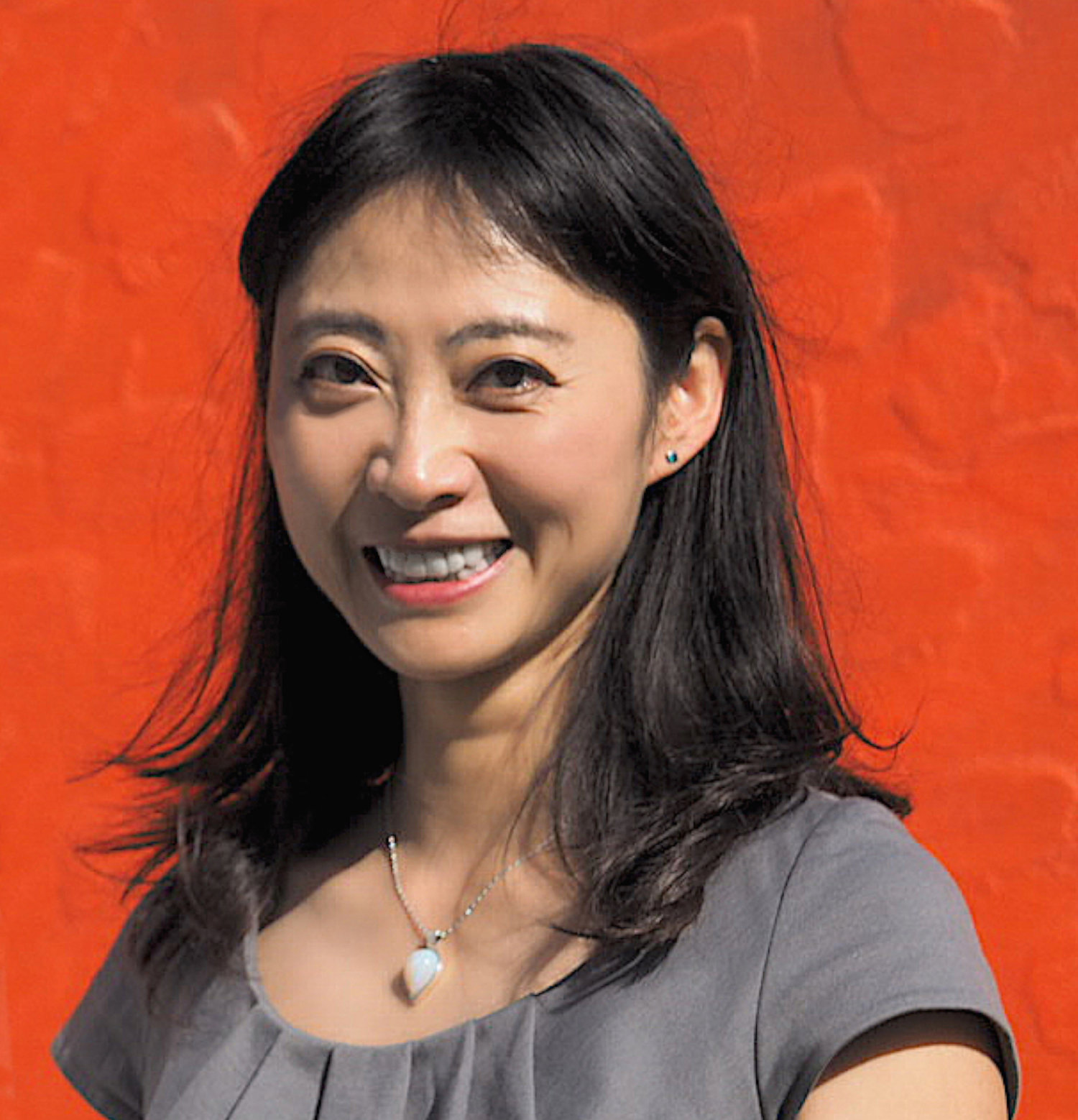
YANG HUANG
Yang Huang grew up in Yangzhou, China and came to the U.S. to study computer science. While working as an engineer, she studied literature and pursued writing. Yang attended Boston College and earned an MFA from the University of Arizona. Read about her journey: Why I Write In English.
Her novel My Good Son won the University of New Orleans Press Publishing Lab Prize. Her linked story collection, My Old Faithful, won the Juniper Prize for fiction, and her debut novel, Living Treasures, won the Nautilus Book Award silver medal in fiction.
Her essays, stories, and screenplay have appeared in Poets & Writers, Literary Hub, The Margins, Asian Pacific American Journal, The Evansville Review, Futures, Porcupine Literary Arts Magazine, Nuvein, and Stories for Film.
Yang lives in the San Francisco Bay Area and works for the University of California, Berkeley. Besides her day job and family life, she writes fiction and creates a more tolerant and hopeful world in stories.
Story Makers is a podcast that features in-depth conversations with accomplished writers, filmmakers and industry experts about story craft, technique, habit and survival–everything you need to know to stay inspired, connect to your creativity, find others’ wonderful stories and your own success.
The hosts:
Elizabeth Stark is a published, agented novelist and distributed filmmaker who teaches and mentors writers at BookWritingWorld.com.
Angie Powers is a distributed filmmaker and published short story writer with an MFA in creative writing and a certificate in screenwriting from UCLA who teaches story structure at BookWritingWorld.com.
18 May 2021, 2:41 pm - 31 minutes 39 secondsEpisode 160: Rest and Revolution: a conversation with author Hari Ziyad
In today’s episode, Angie and Elizabeth talk with author Hari Ziyad about Hari’s new memoir, Black Boy Out of Time. Because Hari is also a screenwriter who has had interest from the worlds of film and television in adapting their memoir, the conversation touches on the opportunities and challenges of creating a series or movie out of a memoir written to a younger self, with some essayistic/ analytical threads. They discuss power of specific stories to resonate beyond their intended or imagined audiences, strategies for working with editors who may misunderstand your story, and how, as an editor, to open up the relationship as a dialogue… Other topics include: touring during the pandemic, pandemic as… metaphor/ appropriate setting in the book, humor and the art of weaving many elements and metaphors into a strong ending, and why we can’t worry art into the world…and how to stop running directly at the tennis ball… Finally we land on the importance of rest!
Links in this episode:
Essay about Hari’s mother’s passing
Hari Ziyad Black Boy Out of Time
@hariziyad on social media
Questions? Email questions at storymakersshow.com
Story Makers is a podcast that features in-depth conversations with accomplished writers, filmmakers and industry experts about story craft, technique, habit and survival–everything you need to know to stay inspired, connect to your creativity, find others’ wonderful stories and your own success.
The hosts:
Elizabeth Stark is a published, agented novelist and distributed filmmaker who teaches and mentors writers at BookWritingWorld.com.
Angie Powers is a distributed filmmaker and published short story writer with an MFA in creative writing and a certificate in screenwriting from UCLA who teaches story structure at BookWritingWorld.com.
11 May 2021, 4:22 pm - 28 minutes 13 secondsEpisode 159: Is Tomorrow Yesterday? Chronology in Structure
The promise of knowledge management for the widely curious brain. Paper books and index cards and card catalogs and the art of tracking and linking your ideas. The act of writing is fundamental to thinking. Upended routines as in-person school begins in a small, irregular way. Speaking of nonlinear, how linear does plot need to be? Is chronology a friend to casualty? Is it necessary? The ways the backstory can circle back but acquire new meanings or trigger new understanding. Bringing causality and chronology into play. The consciousness of development matters, but the consciousness creating the story can be the reader’s. Alternate reasons to chronology for, what happens next? Memoir and the disconnect between character and events, which should join inform each other in service to story. The low-point, for example, will come from the character. Looking for the story scenes in life, as there is no shortage of redemption and failure in life. Geometry and patterns.
Links in this episode:
Director position for our school
Mortimer J. Adler How to Read a Book
Ericsson and Pool Peek: Secrets from the New Science of Expertise (10,000 hours)
Brown et al, Make It Stick: The Science of Successful Learning
Sonke Ahrens How to Take Smart Notes
Jennifer Egan A Visit from the Goon Squad
Devi S. Laskar The Atlas of Reds and Blues
Rabid Alameddine I, the Divine
John Truby The Anatomy of Story
Questions? Email questions at storymakersshow.com
Story Makers is a podcast that features in-depth conversations with accomplished writers, filmmakers and industry experts about story craft, technique, habit and survival–everything you need to know to stay inspired, connect to your creativity, find others’ wonderful stories and your own success.
The hosts:
Elizabeth Stark is a published, agented novelist and distributed filmmaker who teaches and mentors writers at BookWritingWorld.com.
Angie Powers is a distributed filmmaker and published short story writer with an MFA in creative writing and a certificate in screenwriting from UCLA who teaches story structure at BookWritingWorld.com.
27 April 2021, 8:33 pm - 32 minutes 2 secondsEpisode 158: Loving Flawed Characters
This week, Elizabeth launches a new project, while Angie starts teaching in-person middle school math, thinking about individual learning strategies and styles. A listener asks, what is the secret to creating flawed characters that readers still want to invest in? The episode zeroes in on some answers. Notes from the conversation: Is self-reflection a virtue? Do we prefer Clark Kent or Superman? Must readers like characters or is it only necessary that they can’t look away, as with a car crash? Maybe relate-ability is more important. Characters we like will not be liked by everyone. How secret is the secret to like-ability? Call on simpatico, grace, skill/ expertise… The conversation grapples with reliability in narrators, creating sympathy, building empathy, wish fulfillment, underestimated underdogs, antagonists, relatable human desires, owning your flaws, entitlement. Conclusion? Flaws are necessary for story. The wrap-up concerns systems and fighting systems.
Links in this episode:
Kenneth Atchity A Writer’s Time
Dotoesvsky Notes from the Underground
Thom Hartman Adult ADHAD: How to Succeed as a Hunter in a Farmer’s World
Questions? Email questions at storymakersshow.comStory Makers is a podcast that features in-depth conversations with accomplished writers, filmmakers and industry experts about story craft, technique, habit and survival–everything you need to know to stay inspired, connect to your creativity, find others’ wonderful stories and your own success.
The hosts:
Elizabeth Stark is a published, agented novelist and distributed filmmaker who teaches and mentors writers at BookWritingWorld.com.
Angie Powers is a distributed filmmaker and published short story writer with an MFA in creative writing and a certificate in screenwriting from UCLA who teaches story structure at BookWritingWorld.com.
13 April 2021, 3:41 pm - 34 minutes 17 secondsEpisode 157: A Toast to the Friction Between Non- and Fiction
As Angie heads from Zoom into the classroom, she and Elizabeth discuss the switching of mediums, the differences between camera and stage. Body language. Elizabeth is working on deciding her next project. Then they dive into the differences and similarities between fictions and nonfiction, their strategies, their expectations, and even their definitions. Fictionalizing, omission, editing, exaggerating…what creates and what crosses the lines? What about auto-fiction, fiction based on life? They offer some tools to borrow from each genre for the other, including historical context, research, interviews, metaphors, vivid and specific detail, even fantasy… And gesture toward some problems with ideas of balance and objectivity. Wrapping up they talk about religion and central metaphors. Warning: excess punning occurs.
Links in this episode:
Sir Ian McKellen on Dick Cavett
The Sisters of Perpetual Indulgence
Middlesex by Jeffrey Eugenidies
Ta-Nahesi Coates The Water Dancers
Colson Whitehead The Underground Railroad
Barbara Oakley A Mind for Numbers
Make It Stick by Peter C. Brown and others
Questions? Email questions at storymakersshow.comStory Makers is a podcast that features in-depth conversations with accomplished writers, filmmakers and industry experts about story craft, technique, habit and survival–everything you need to know to stay inspired, connect to your creativity, find others’ wonderful stories and your own success.
The hosts:
Elizabeth Stark is a published, agented novelist and distributed filmmaker who teaches and mentors writers at BookWritingWorld.com.
Angie Powers is a distributed filmmaker and published short story writer with an MFA in creative writing and a certificate in screenwriting from UCLA who teaches story structure at BookWritingWorld.com.
7 April 2021, 4:18 am - 31 minutes 8 secondsEpisode 156: What Shall I Work on Next? Deciding and Getting Started
In today’s episode, Angie and Elizabeth report in their debut trailer camping experience, amd compare it to a creative process. Meanwhile,Angie is doing animation, and Elizabeth gives a submissions update. They turn them to answering a listener’s question about which project to choose, exploring the following approaches:
- Go pitch it to somebody (excitable).
- Ask yourself, Is it big enough to be a book?
- Write a treatment, premise, longline, or outline/ scenelist.
- Be messy.
- Explore whether your multiple projects are in fact connected to each other.
- Put your notes on the wall. Look at them.
- Brainstorm scenes.
- Schedule table reads.
- Read aloud to someone or record yourself or ask someone else to read your work to you… even your computer…
- Work on multiple projects at once…(and the pros and cons of doing so)
- Take time off/ let it sit.
What if, conversely, you have no ideas? Angie and Elizabeth argue about generating ideas by
asking questions that inspire you or letting yourself be impacted by the world.
RIP Beverly Cleary and Larry McMurtry
Links in this episode:
Stockard Channing reading Ramona books audiobook collection
Call My Agent show
Isabel Huppert star
The Office show
The Arsonist’s City by Hala Alyan audiobook
Always Be My Maybe film
Questions? Email questions at storymakersshow.comStory Makers is a podcast that features in-depth conversations with accomplished writers, filmmakers and industry experts about story craft, technique, habit and survival–everything you need to know to stay inspired, connect to your creativity, find others’ wonderful stories and your own success.
The hosts:
Elizabeth Stark is a published, agented novelist and distributed filmmaker who teaches and mentors writers at BookWritingWorld.com.
Angie Powers is a distributed filmmaker and published short story writer with an MFA in creative writing and a certificate in screenwriting from UCLA who teaches story structure at BookWritingWorld.com.
31 March 2021, 1:34 am - 33 minutes 4 secondsEpisode 155: And That is When the Murders Began
The episode kicks off with a glance at the trouble with deep work in a pandemic with kids before diving into emotion in story: Emotional arc and emotion as action trigger, emional as both key and causal. It is emotion that drives readers to read, based on desired mood and emotion. There are writer who avoid emotion and the converse trouble of only focusing on emotion, musing, feeling. The discussion affirms the need for both action and emtion, as it examines the challenges of emotional logic. Other terms and topics include: Thin cuts. Character cuts. Tone. Simplification. Setting. What reveals character accurately. Small telling details reveal character. Focus. Relevance. Snap judgements. Emotion and dialogue. Hard-earned emotional breakthroughs. Fear of sentimentality. (Sentimentality is not the same as earned emotional response.) Drop dive into emotion on today’s show.
Links in this episode:
E.M. Forster Aspect of the Novel
Pilar Alessandra The Coffee Break Screenwriter
Grace Paley “Wants” in Emormous Changes at the Last Minute
Shobha Rao Girls Burn Brighter
Questions? Email questions at storymakersshow.com
Story Makers is a podcast that features in-depth conversations with accomplished writers, filmmakers and industry experts about story craft, technique, habit and survival–everything you need to know to stay inspired, connect to your creativity, find others’ wonderful stories and your own success.
The hosts:
Elizabeth Stark is a published, agented novelist and distributed filmmaker who teaches and mentors writers at BookWritingWorld.com.
Angie Powers is a distributed filmmaker and published short story writer with an MFA in creative writing and a certificate in screenwriting from UCLA who teaches story structure at BookWritingWorld.com.
3 March 2021, 6:15 pm - 30 minutes 52 secondsEpisode 154: The Character of Intuitive Planning
Angie teaches math and daydreams a new film while Elizabeth gets a mammogram and considers character questions. In today’s episode, Elizabeth explores the epiphany she began to have on last week’s episode by asking Angie a lot of questions about balancing or toggling between chaos, intuition, planning, and structure. What is the relationship of character to action in a discovery draft and beyond? Is what we love about a discovery draft what means we can throw it away? Discovery v drafting. In responding, Angie explores her childhood boredom during chores that sparked her earliest fan fiction. They discuss how structure gives you a way to reapproach a vast and layered project like a book or screenplay. How to zero in on character and story. And the ways that list-making story development can create the magical discovery experience as well as blind drafting can. The planning process also brings in an element of focus that can be helpful to those who lack this. An outline can be incredibly vivid. Intuitive outlining can also get you through cliche ideas, dig deeper. They also touch on iterations in screenplays versus novels and the role the reader plays in co-creating a story. Angie talks about her experience translating a screenplay into a novel. Other topics include the value of time off between iterations, of simplifying and of fighting for windows of focus. Finally, Tony Robbins provides a window into emotional state when he cites a study that proves the power of sensate detail in creating emotion.
Links in this episode:
David Mamet’s 3 Scene Questions
Matthew Salesses Craft in the Real World
Lajos Egri The Craft of Dramatic Writing (premise)
Cal Newport Deep Work
Questions? Email questions at storymakersshow.comStory Makers is a podcast that features in-depth conversations with accomplished writers, filmmakers and industry experts about story craft, technique, habit and survival–everything you need to know to stay inspired, connect to your creativity, find others’ wonderful stories and your own success.
The hosts:
Elizabeth Stark is a published, agented novelist and distributed filmmaker who teaches and mentors writers at BookWritingWorld.com.
Angie Powers is a distributed filmmaker and published short story writer with an MFA in creative writing and a certificate in screenwriting from UCLA who teaches story structure at BookWritingWorld.com.
23 February 2021, 12:12 pm - 32 minutes 40 secondsEpisode 153: Time Management for Narrators
In this week’s episode, a listener asks a question about transitions and pacing, leading to a roving discussion of pacing, logistics, linearity, causality, and intentionality: what is significant—and how do you know? Creating the reader’s experience through character work in both writing and editing, and then trusting character to emerge through necessary scenes allows for the shaping of meaningful transition. Angie and Elizabeth compare and contrast their mothers’ carrot chopping methodologies to demonstrate how character comes through all actions. Other topics include scenes lists, transitions in screenplays versus prose, character expectations, jumpcuts, moments of change, grocery shopping, not working, and quantity versus quality in submissions as in all things, at certain times.
Links in this episode:
Devi S Laskar on Story Makers Show: Taking It Day by Day
Lily King Writers & Lovers
Josh Spector’s notes on Seth Godwin’s book
The Practice by Seth Godin
The Danish Girl and The Nineteenth Wife by David Ebershoff
Questions? Email questions at storymakersshow.comStory Makers is a podcast that features in-depth conversations with accomplished writers, filmmakers and industry experts about story craft, technique, habit and survival–everything you need to know to stay inspired, connect to your creativity, find others’ wonderful stories and your own success.
The hosts:
Elizabeth Stark is a published, agented novelist and distributed filmmaker who teaches and mentors writers at BookWritingWorld.com.
Angie Powers is a distributed filmmaker and published short story writer with an MFA in creative writing and a certificate in screenwriting from UCLA who teaches story structure at BookWritingWorld.com.
16 February 2021, 12:37 pm - 27 minutes 57 secondsEpisode 152: A Generous Frugality: Uses of Poetic Language in Prose
9 February 2021, 12:24 pm - More Episodes? Get the App
Your feedback is valuable to us. Should you encounter any bugs, glitches, lack of functionality or other problems, please email us on [email protected] or join Moon.FM Telegram Group where you can talk directly to the dev team who are happy to answer any queries.
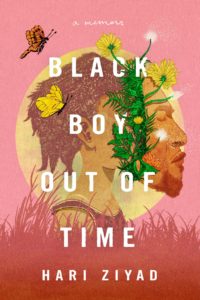
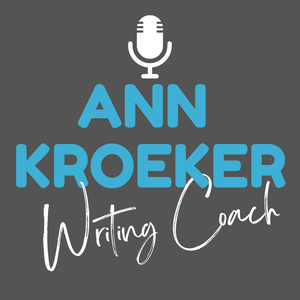 Ann Kroeker, Writing Coach
Ann Kroeker, Writing Coach
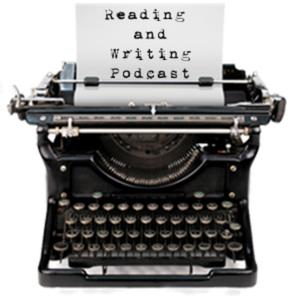 Reading And Writing Podcast
Reading And Writing Podcast
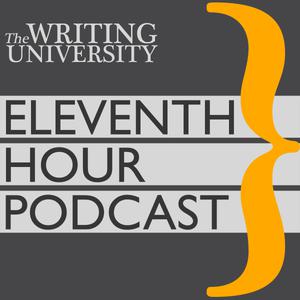 The Writing University Podcast
The Writing University Podcast
 The Writing Show
The Writing Show
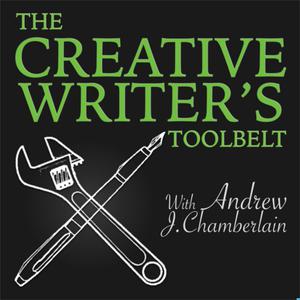 The Creative Writer's Toolbelt
The Creative Writer's Toolbelt
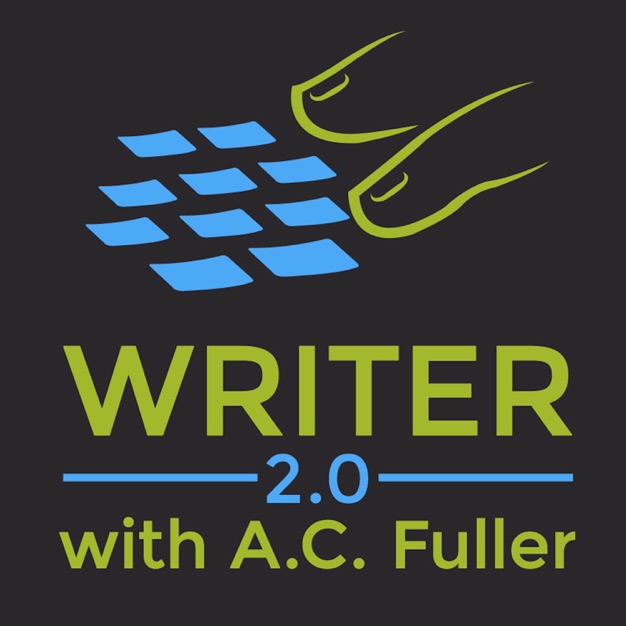 WRITER 2.0: Writing, publishing, and the space between
WRITER 2.0: Writing, publishing, and the space between